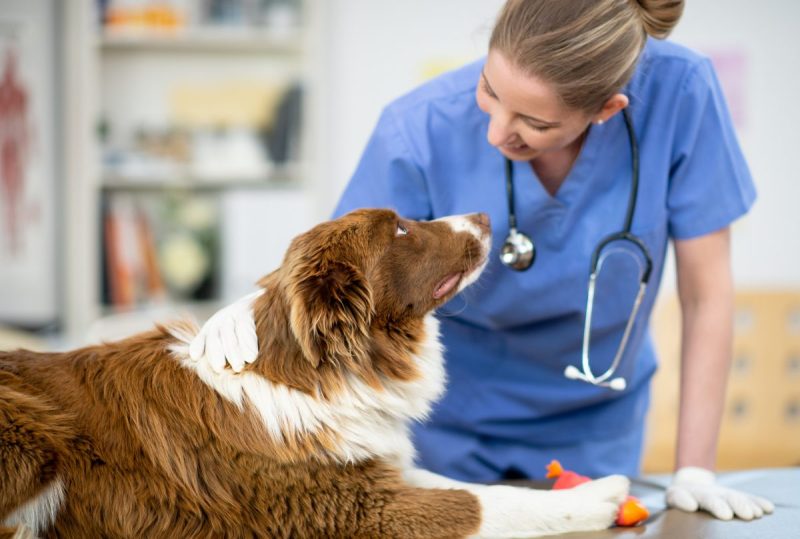Hyperkalemia in dogs happens when potassium levels in the bloodstream are higher than normal. Potassium is an important electrolyte in dogs’ bodies because it helps control nerve impulses, brain function, muscle activity, and heart function. Irregular levels should be addressed immediately.
If you see the signs, especially if your dog has kidney or urinary tract issues, consult your veterinarian for a proper diagnosis and treatment. Here’s what you should know about the symptoms, causes, and treatments for hyperkalemia in dogs.
Symptoms of hyperkalemia in dogs
Symptoms of hyperkalemia in dogs can range from moderate to serious, but because potassium is so integral to many functions of the body, including the brain and heart, it’s essential to address these symptoms early before they become a major problem.
Here are several symptoms of hyperkalemia in dogs:
- Diarrhea
- Vomiting
- Gastrointestinal upset
- Weakness
- Lethargy
- Slow heart rate
- Difficulty urinating
- Low urine volume
- Collapse
- Paralysis of the limbs (limbs remain flexible, not rigid)
Causes Of Hyperkalemia In Dogs
Hyperkalemia is the opposite of hypokalemia, a condition where blood potassium levels are too low. Both can result from improper kidney function, but while hypokalemia often happens when too much potassium is being lost through urine, hyperkalemia results from dogs not urinating and removing enough excess potassium from the body.
There are several possible causes of hyperkalemia in dogs, most of which concern the kidneys and urinary tract. Some of these issues may be treated fairly easily, while others, like urinary obstruction — the number one cause of fatal hyperkalemia —, are more complicated and can be deadly. For that reason, all underlying conditions need to be diagnosed and treated by a vet.
.Here are several possible causes of hyperkalemia in dogs:
- Overdose of potassium supplements
- Fluid in the abdomen (ascites)
- Injury to the kidneys or urinary tract
- Kidney stones
- Bladder stones
- Urinary tract obstruction
- Thrombocytosis
- Leukemia
- Addison’s disease
- Diabetes and ketoacidosis
- Cancer
- Bacterial infection
- Overdose of seizure medication
- Exposure to certain antibiotics or heart medications
- Renal failure
- Gastrointestinal disease
- Conditions that cause a reduction in urination
Note that a blood test that shows high levels of potassium may be psuedohyperkalemia, which appears due to potassium leaking from cells after dogs get their blood drawn. This is known to occur in Akitas and Shar-Peis, but it is not a cause for concern.
Dogs who suffer from hyperkalemia usually show at least some symptoms, so if an otherwise healthy dog has high blood potassium levels, it’s likely to be psuedohyperkalemia.
Treatments for hyperkalemia in dogs
Treatment for hyperkalemia in dogs generally begins with intravenous fluid therapy to restore normal electrolyte levels. This will also help treat any dehydration or low blood pressure that affected dogs may also suffer from.
When normal levels of potassium are restored, the underlying cause of hyperkalemia should be diagnosed and treated. Further treatment can vary widely based on the diagnosis. For example, if diabetes and ketoacidosis are the causes, insulin therapy will likely be prescribed. Stones in the urinary tract may sometimes be broken down with special diets or removed surgically.
Additionally, discontinuing supplements or medications that cause hyperkalemia may correct the condition. For dogs who suffer from chronic kidney disease, a low-potassium prescription diet may also be required. Vets can treat further underlying conditions as needed on an individual basis.

